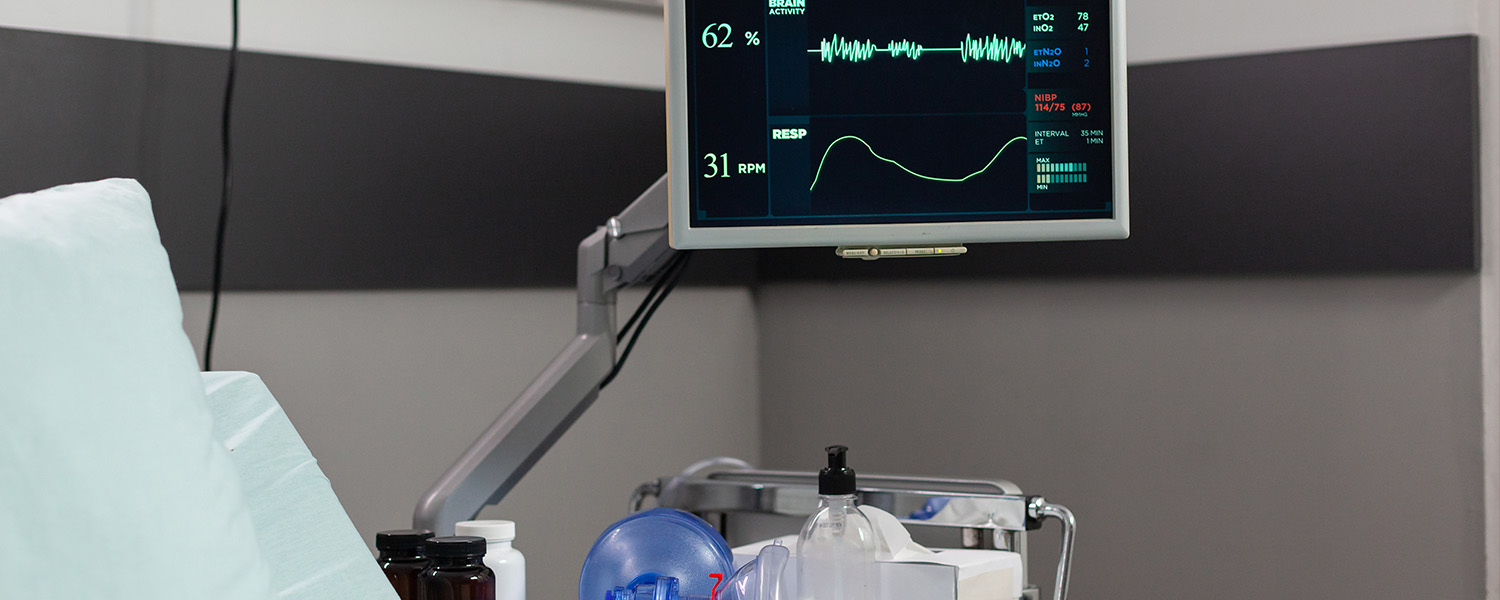Weekly Mass Torts Bulletin 2024-April-15
Philips Barred from New CPAP Sales in the U.S.

A federal judge has sanctioned a consent decree prohibiting Philips Respironics from producing and distributing CPAP and BiPAP machines at its U.S. plants until the company meets specific criteria established by federal regulators in response to the mishandling of a substantial Philips CPAP recall initiated in 2021.
The manufacturer has drawn significant criticism for marketing millions of devices containing a hazardous sound abatement foam that degrades over time, releasing small black particles and chemicals directly into the machine's air pathways.
Over the past couple of years, thousands of lawsuits against Philips CPAP machines have been filed by former users who suffered severe lung damage, respiratory issues, and other injuries. Additionally, the FDA has identified serious flaws in the company's recall and repair program, exacerbating the risks faced by machine owners.
Due to the serious health risks posed by breathing in the Philips CPAP foam, federal health officials advised consumers to discontinue using their machines unless necessary for life-supporting treatment. More than two years later, concerns persist about Philips' handling of the recall, prompting the manufacturer to agree to halt sales of all its CPAP and breathing machine devices in the U.S. late last year.
On April 9, a U.S. District Judge in the Western District of Pennsylvania approved a consent decree between Philips and the U.S. Food and Drug Administration (FDA), preventing the company from manufacturing or distributing CPAP and BiPAP devices from facilities in Pennsylvania and California until demonstrating compliance with accepted manufacturing standards and a remediation plan to repair or replace the recalled devices with safe alternatives.

The decree follows a complaint filed on April 4 by the FDA and U.S. Department of Justice prosecutors, alleging Philips violated the Food, Drug, and Cosmetic Act (FDCA) by manufacturing medical devices under conditions failing to comply with the FDCA and current Good Manufacturing Practices.
Furthermore, the FDA and Justice Department contend Philips Respironics failed to furnish regulators with written reports of device corrections and removals, neglected to obtain FDA approval for remediation plans, and highlight concerns mirroring violations leading to previous FDA warning letters since the recall's inception.
"Today's consent decree requires Philips Respironics to meet a series of stringent thresholds before restarting production and establishes safeguards against future violations of the Food, Drug, and Cosmetic Act," remarked the U.S. Attorney for the Western District of Pennsylvania in a press release. "This office, the FDA, and our partner agencies are committed to holding manufacturers accountable when they violate the law and put the public at risk."
In addition to sales and distribution restrictions, the consent decree mandates Philips to engage external experts to inspect other facilities manufacturing sleep and respiratory care devices, rectify any deficiencies, and conduct an independent evaluation of testing on potential replacement sound abatement materials.
The consent decree's applicability may extend to other Philips manufacturing facilities if the FDA finds them non-compliant with FDCA regulations.
FDA: No Asbestos in 2023 Talc Cosmetics

Despite the detection of asbestos in Johnson’s Baby Powder bottles, the FDA has rigorously tested samples of talc-based cosmetic products sold in the U.S., finding no evidence of contamination in products sampled last year.
Asbestos, a hazardous substance, has been linked to the development of severe respiratory illnesses, lung cancer, mesothelioma, and other life-threatening injuries. Despite most forms of asbestos being banned for decades, it has been detected in several talc-based cosmetic products. Consequently, the FDA established the Interagency Working Group on Asbestos in Consumer Products (IWGACP) in late 2018 to address this issue.
The IWGACP recently released the results of their 2023 testing for talc-based cosmetics on April 5th, revealing that none of the approximately 50 products sampled last year contained any evidence of asbestos contamination.
For the testing process, the FDA enlisted the services of an independent testing lab, AMA Analytical Services, Inc., which employed Polarized Light Microscopy (PLM) and Transmission Electron Microscopy (TEM). These methods, recommended by the IWGACP in 2022, are deemed the most effective in detecting asbestos in talc. Since 2018, AMA has been conducting sample testing for the FDA.
The FDA stated, “Cosmetic products were selected and purchased by the FDA, and then samples were blinded and transferred to AMA for analysis.” The products were chosen based on various criteria, including product type, price range, popularity on social media and in advertisements, products marketed to children and women of color, and any third-party reports of potential asbestos contamination.
The testing encompassed various talc-based cosmetics such as root touch-up products, bronzing powders, blush, and others, manufactured by companies like L’Oreal, Clairol, Dior, and more. The agency expressed its commitment to establishing standardized testing requirements for detecting asbestos in talc-based cosmetic products.
Last month, the EPA implemented a ban on the last remaining uses of asbestos in the U.S., responding to mounting pressure and concerns over asbestos risks. Chrysotile asbestos, the final form of the chemical known to be imported, processed, or distributed in the U.S., was used in various applications in the past, including disinfecting drinking water and wastewater.
The ban also introduces rigorous workplace safety measures to safeguard workers from asbestos exposure in industries with a phaseout period exceeding two years. Additionally, it outlines rules for proper asbestos disposal.
As a consequence of asbestos contamination, Johnson & Johnson is currently facing thousands of lawsuits related to its Baby Powder and Shower-to-Shower products. These lawsuits allege that users were not adequately warned about the risk of developing ovarian cancer, mesothelioma, and other injuries associated with regular use of the talc-based powders.
Judge Cuts Bayer's $1.56B Roundup Verdict

A Missouri judge has significantly reduced a $1.56 billion verdict against Bayer to $611 million in a lawsuit involving three individuals who alleged that the company's Roundup weed killer caused their cancer.
The reduction primarily stemmed from slashing punitive damages. In November, a Cole County, Missouri, jury found Bayer's Monsanto unit liable to the plaintiffs, attributing their non-Hodgkin's lymphoma to Roundup exposure. The jury held Monsanto accountable for negligence, design defects, and failure to warn about Roundup's risks, awarding $61.1 million in compensatory damages and $1.5 billion in punitive damages, evenly distributed among the plaintiffs.
However, on March 15, the judge upheld the $61.1 million compensatory damages but significantly decreased punitive damages to nine times that amount, totaling $549.9 million. This adjustment aligns with the U.S. Supreme Court's guidance, suggesting punitive damages should generally not exceed nine times compensatory damages.
Bayer promptly sought to invalidate the verdict and reduce damages, subsequently filing an appeal notice on March 22. The company maintains that numerous studies spanning decades have demonstrated the safety of Roundup and its active ingredient glyphosate.
While Bayer disagreed with the court's decision regarding damages, it believes the reduced amount remains excessive and inconsistent with legal principles. Conversely, the plaintiffs' lawyer expressed satisfaction with the adjusted awards, asserting they align with evidence showcasing Monsanto's disregard for consumer safety.

Roundup, widely used in the United States, saw its home sales discontinued by Bayer last year. Since Bayer's acquisition of Monsanto in 2018, the company has faced extensive litigation regarding Roundup's alleged cancer-causing properties. In 2020, Bayer agreed to settle a substantial portion of the litigation for $10.9 billion but failed to resolve future cases.
Of the 167,000 claims Bayer encountered, approximately 113,000 have been settled or deemed ineligible. While Bayer has prevailed in most recent Roundup trials, plaintiffs have secured verdicts exceeding $4 billion, including a $2.25 billion award in January. Bayer is actively appealing these decisions.
Zantac Settles 4,000 Lawsuits in U.S. Courts

Sanofi has announced a settlement agreement regarding approximately 4,000 Zantac cancer lawsuits filed in state courts across the country.
However, the pharmaceutical company still faces tens of thousands of other claims related to the recalled heartburn drug that are pending in Delaware.
Zantac (ranitidine) was widely used by millions of Americans to treat heartburn and acid reflux until a recall was issued in late 2019 due to concerns about the instability of ranitidine, which can lead to the formation of high levels of N-Nitrosodimethylamine (NDMA), a potent human carcinogen.
Despite the settlement, several companies including GlaxoSmithKline, Boehringer Ingelheim Pfizer, and Sanofi, along with various other manufacturers, distributors, and retailers, are still contesting over 70,000 Zantac lawsuits in state courts nationwide, with the majority filed in Delaware. Approximately 20,000 of these Delaware claims name Sanofi as a defendant, alleging that former users developed bladder cancer, liver cancer, pancreatic cancer, stomach cancer, and other injuries after taking Zantac.
Sanofi has reached a preliminary agreement to resolve thousands of claims pending outside of Delaware state courts. However, specific settlement details have not been disclosed, and the company intends to continue fighting the remaining litigation.
Initially, Zantac litigation was consolidated in the federal court system, centralized before the U.S. District Court for the Southern District of Florida for coordinated discovery and pretrial proceedings. However, in 2022, a judge's ruling excluded all plaintiffs' expert witnesses from testifying at trial under federal evidentiary rules, leaving federal plaintiffs unable to prove that Zantac pills caused their cancer. As a result, all Zantac lawsuits in the federal court system were dismissed. Yet, this ruling did not impact lawsuits filed in California, Delaware, and other state courts, where different standards for the admissibility of expert witness testimony apply.
Currently, the Delaware Superior Court is considering whether Zantac cases in the state should be dismissed on similar grounds as the federal cases. This decision could determine whether the majority of Zantac lawsuits in Delaware proceed. Although the judge may apply the same legal standards as the federal court, the outcome remains uncertain, as the Delaware cases involve different expert witnesses.
Sanofi's settlement announcement follows GlaxoSmithKline's resolution of several Zantac lawsuits in California state court before trial. GlaxoSmithKline settled two Zantac cases in February and another in November, asserting its intention to defend itself against the remaining lawsuits. However, the company faces additional Zantac lawsuits scheduled for trial in California in the upcoming months.
While the outcomes of these trials will not directly impact other Zantac cancer lawsuits nationwide, they will be closely monitored to assess how juries respond to evidence and testimony that could be repeated in tens of thousands of trials across the country.

